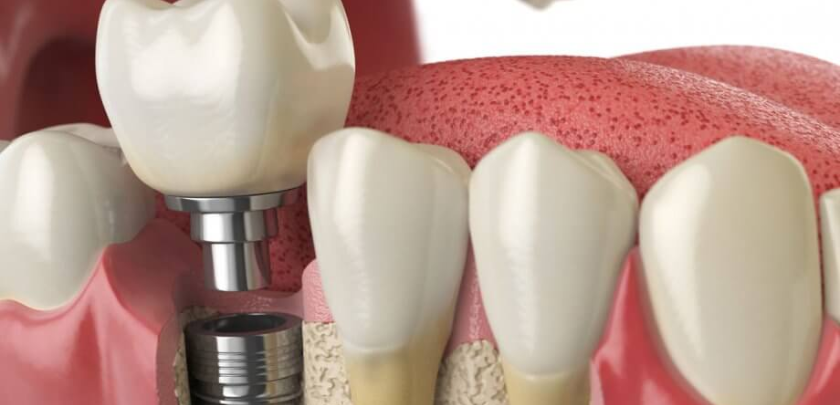Dentists recommend 2 exams per year. Book your exam today!
Can You Smoke After The Dental Implant Procedure?

Smoking after a dental implant procedure is a topic of considerable concern for both dental professionals and patients alike. The success of a dental implant involves a complex healing process that can be significantly influenced by a patient’s habits, including smoking. This article delves into why smoking is discouraged after dental implant surgery, the effects it can have on the healing process, and some strategies for managing the urge to smoke during the recovery period.
Understanding Dental Implants
Dental implants are surgical components that interface with the bone of the jaw or skull to support a dental prosthesis such as a crown, bridge, denture, or facial prosthesis. The procedure involves the insertion of a titanium post into the jawbone, which then fuses with the bone over a period of months in a process known as osseointegration. This fusion is crucial for the stability and longevity of the implant.
The Impact of Smoking on Healing
Smoking has been shown to have several adverse effects on the body’s ability to heal, especially in the context of dental surgery. Here are some of the reasons why smoking is particularly problematic following a dental implant procedure:
- Delayed Healing: Nicotine, a key component of tobacco smoke, constricts blood vessels, reducing blood flow to the surgical site. This decreased blood flow can significantly slow the healing process.
- Increased Risk of Infection: Smoking compromises the immune system, making it harder for your body to fight off potential infections at the site of the implant.
- Impaired Osseointegration: Successful dental implants rely on the process of osseointegration, where the implant fuses with the jawbone. Smoking has been linked to a higher rate of failure in this process, likely due to its impact on blood flow and bone healing.
- Gum Disease: Smokers are at a higher risk of developing gum disease, which can undermine the support structure of dental implants.
Recommendations for Patients
Given the risks, dental professionals strongly advise against smoking after receiving a dental implant. Here are some recommendations for patients who smoke:
- Pre-Surgery Cessation: Ideally, patients should quit smoking before undergoing the dental implant procedure to ensure optimal healing conditions. A cessation period of at least two weeks prior is often recommended.
- Extended Post-Surgery Cessation: After the surgery, it’s crucial to avoid smoking for as long as possible; a minimum of two months is often recommended to allow the implant to properly integrate with the bone.
- Seek Support: Quitting smoking is challenging, especially under the stress of surgery and recovery. Support from family, friends, and professional cessation programs can be invaluable.
- Nicotine Replacement Therapy: Consider nicotine replacement therapies, such as patches or gum, to manage withdrawal symptoms. However, consult with your healthcare provider to ensure these are safe for your specific health situation.
- Regular Check-ups: Follow-up appointments with your dental professional are crucial. They can monitor the healing process and intervene early if there are signs of complications.
Smoking after a dental implant procedure can significantly compromise the success of the implant due to its detrimental effects on healing and osseointegration. Patients are strongly advised to quit smoking before the surgery and maintain abstinence during the recovery period to ensure the best possible outcome. While quitting smoking is challenging, the benefits it provides to the healing process and overall oral health are substantial. With the right support and strategies, patients can increase their chances of a successful dental implant while improving their general health.







